Country information
Germany (Bundesrepublik Deutschland), located in Central Europe, shared borders with Austria, Belgium, Czechoslovakia, Denmark, France, Luxembourg, the Netherlands, Poland, and Switzerland, with the North Sea and the Baltic Sea on the North.
After the defeat of Germany in the Second World War (1939-1945), the country was divided into two states in 1949 by the victorious forces: West Germany occupied by the USA, UK and France, and East Germany by the Soviet Union. The two states were unified on 3 October 1990.
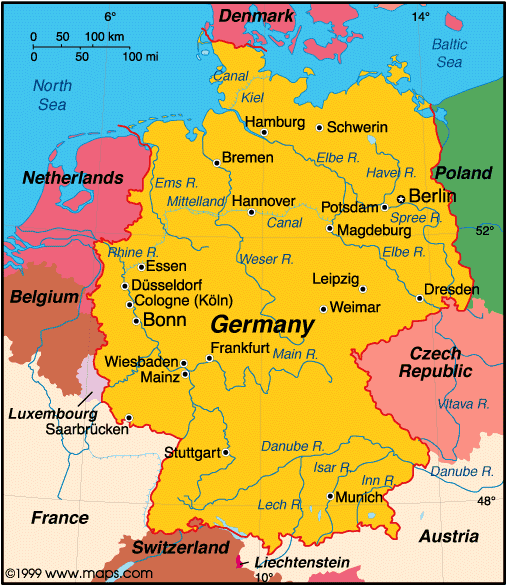
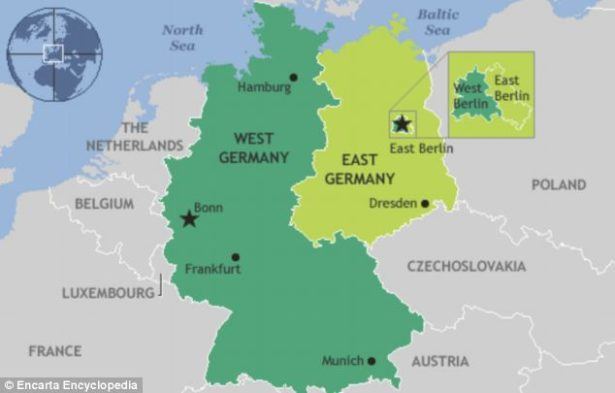
The capital of West Germany was the city of Bonn.
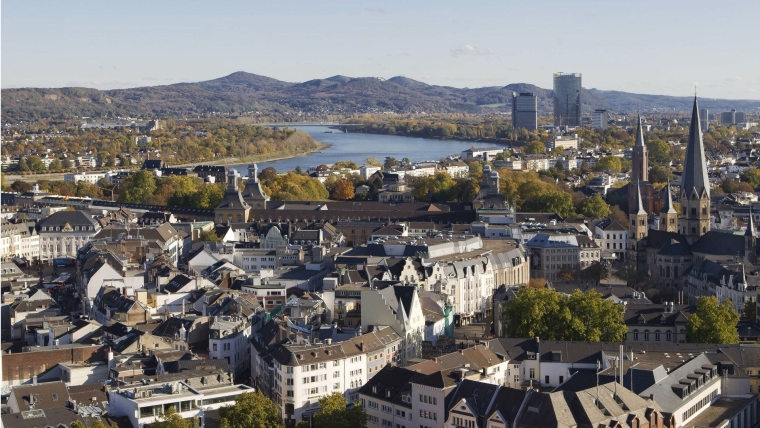
The capital of East Germany was the city of East Berlin. While not part of West Germany, West Berlin was politically aligned with West Germany and directly or indirectly represented in its federal institutions.
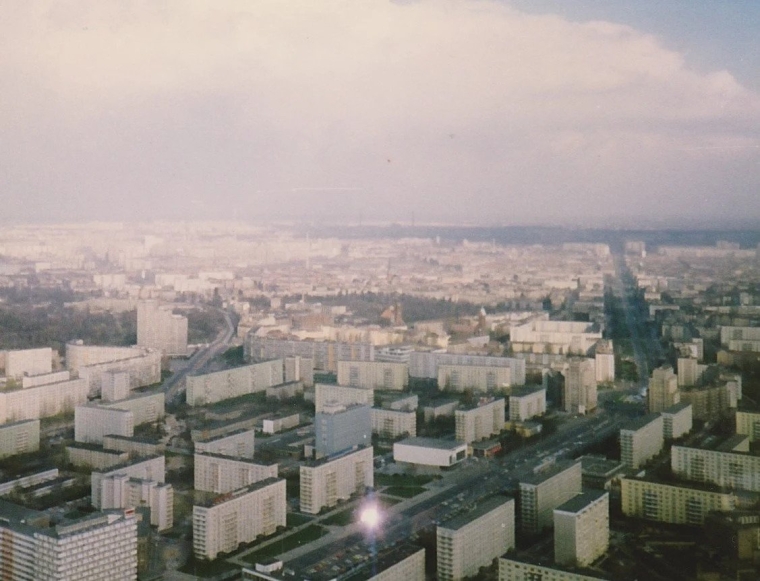
West and East Germany were unified in 1990, the capital of unified Germany was the city state of Berlin.
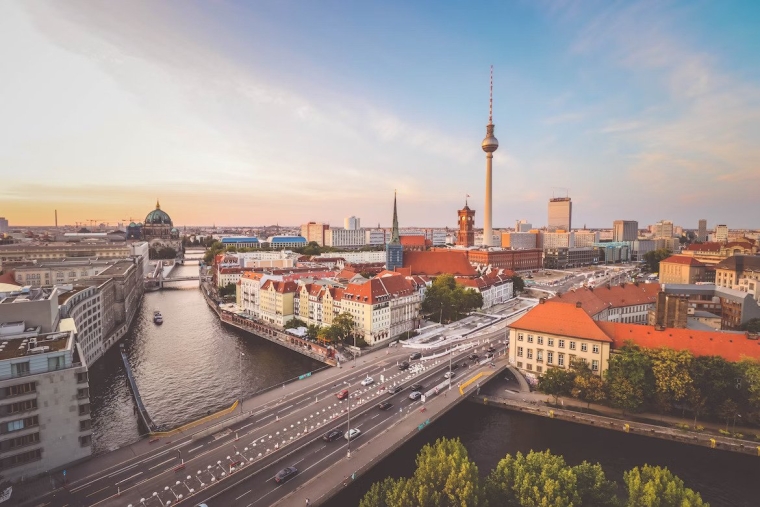
History
The Celts, a collection of tribes which originated in central Europe, were be-lieved to be the first inhabitants of Germany. They were followed by Ger-man tribes at the end of the 2nd century B.C. One of the tribes, the Franks, attained supremacy in western Europe.
In the late 19th century Germany began competing with other European countries to set up colonies in Africa and Asia, that included parts of Burundi, Rwanda, Tanzania, Namibia, Cameroon, Gabon, Congo, Central African Republic, Chad, Nigeria, Togo, Ghana, as well as northeastern New Guinea, Samoa and Micronesian islands in the South Pacific Ocean. Germany lost control of most of its colonial empire at the beginning of the First World War in 1914.
.jpg)
Germany is said to have played their part in the transatlantic slave trade that started in 1682 with the establishment of a fort on the coast of Ghana, designed to serve as a point of departure for the German slave trade. One of the major destinations was present-day Haiti, which at the time was the source of three-quarters of the world’s sugar output.
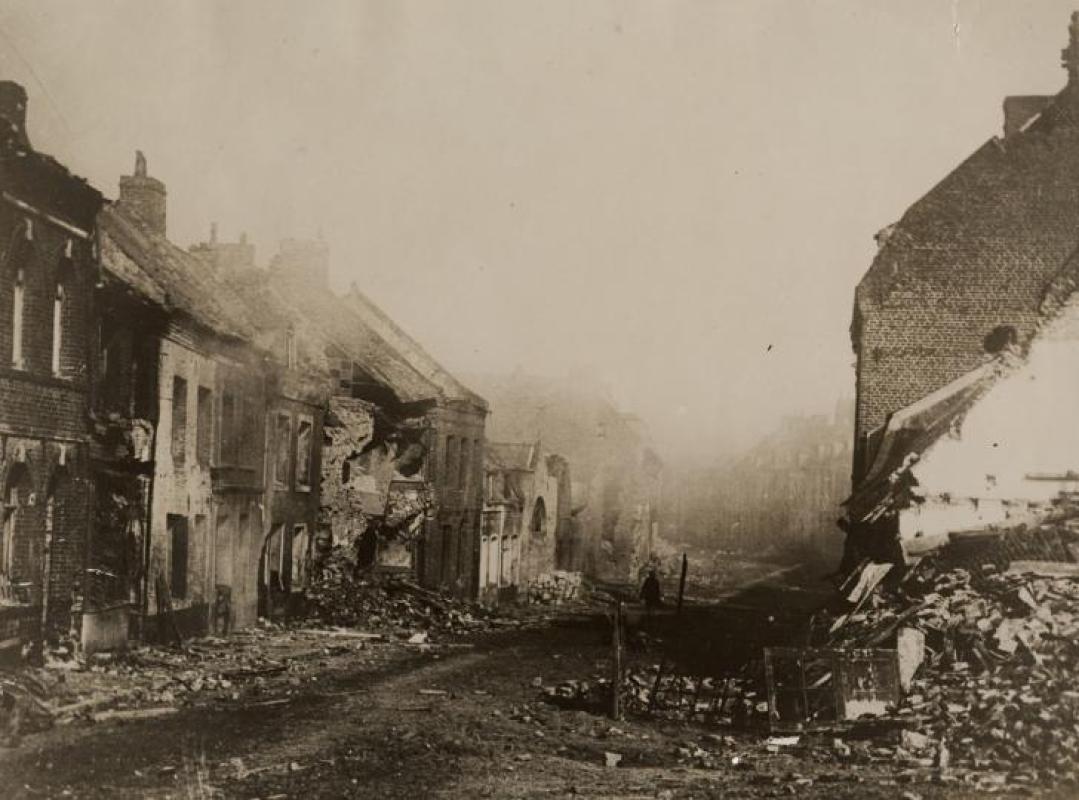
The tensions with the other European countries finally led to First World War in 1914, between the Central Powers (Germany, Austria-Hungary, Bulgaria and the Ottoman Empire) and the Allied Powers (Great Britain, France, Russia, Italy, Romania, Canada, Japan and the United States).
The Allied Powers claimed victory over Germany in 1919, the worst conflict the world had then seen, with more than 16 million soldiers and civilians killed.
The Second World War began when Nazi Germany invaded Poland in 1939 and raged across the globe until 1945, when Japan surrendered to the United States after atomic bombs were dropped on Hiroshima and Nagasaki.
The War was also caused in part by the economic crisis of the Great Depression and by political tensions left unresolved following the end of the First World War. An estimated 60 to 80 million people had died, including up to 55 million civilians.
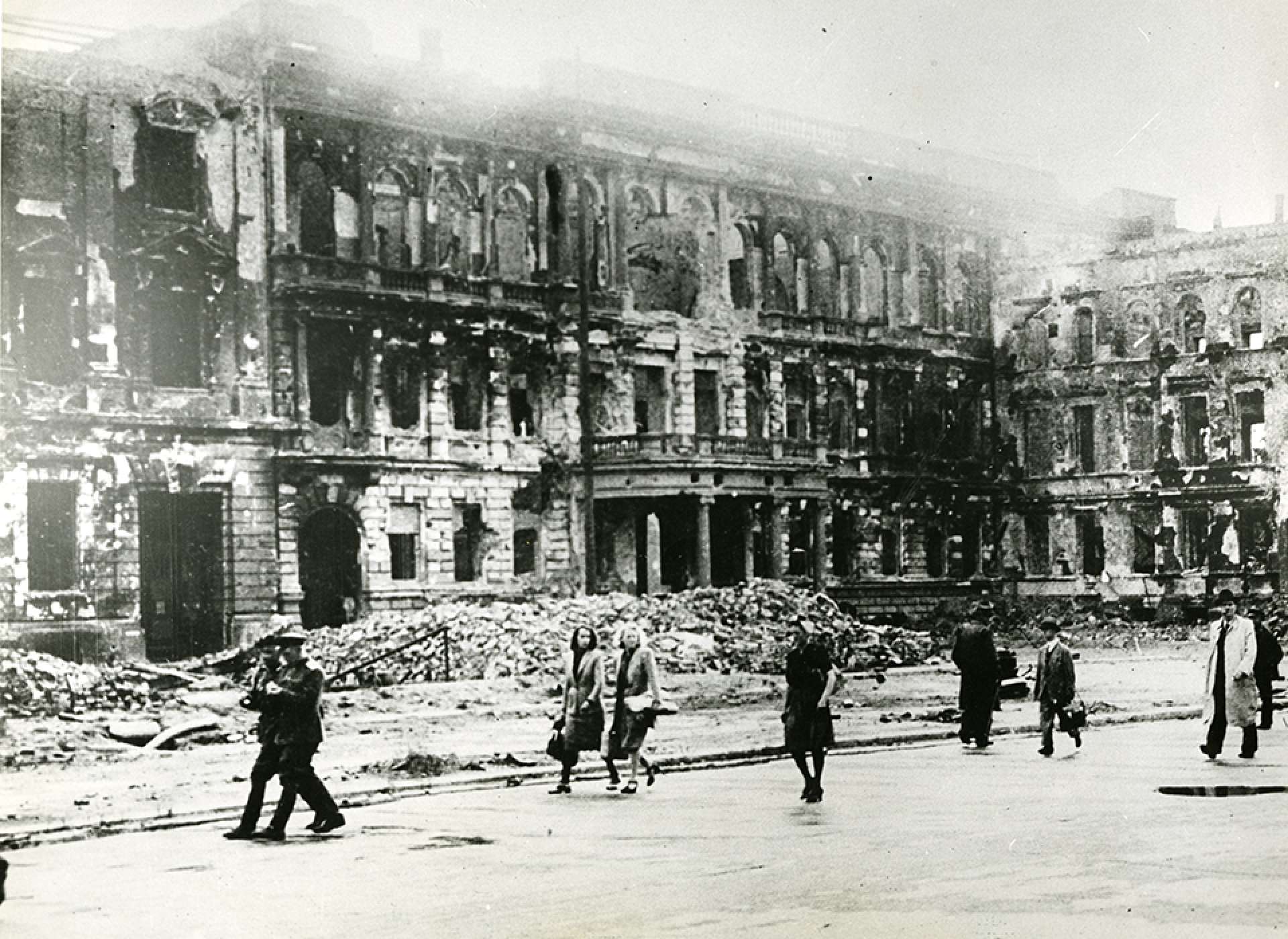
After the Second World War, Germany was divided into West and East in 1949. The country became the centre of a standoff between the Western powers and the Soviet Union which was a member of the victorious Allied Powers.
West Germany claimed an exclusive mandate for all of Germany, officially as the Federal Republic of Germany, and rose from the enormous destruction wrought by Second World War to become one of the world's leading industrialised countries. East Germany under the occupation of the Soviet Union was known as the German Democratic Republic had not made the same progress.
 This confrontation, which lasted 44 years, was known as the Cold War. In 1989, East Germany opened its borders (the opening of the Berlin Wall), and the Cold War came to an end. East Germany unified with West Germany in 1990.
This confrontation, which lasted 44 years, was known as the Cold War. In 1989, East Germany opened its borders (the opening of the Berlin Wall), and the Cold War came to an end. East Germany unified with West Germany in 1990.
Population and language
The population of West Germany in 1978 was around 61 million, when the Bank of Credit and Commerce International BCCI opened its first branch in Hamburg.
The Germans represented the largest group. The important small minorities were the Turkish, Polish and Romanian.
German was the official language.
English enjoyed a prominent position as a global language for business and communication.
Economy and foreign trade
After losing the Second World War (1939-1945), Germany was in ruins. West Germany, which was a separate state, recovered to become Europe’s largest economy. East Germany, under the Soviet Union fell far behind.
After German reunification in 1990, West Germany expended considerable funds to modernise East Germany.
West Germany (later Germany) was among the world's largest and most technologically advanced producers of iron, steel, coal, cement, chemicals, machinery, vehicles, machine tools, electronics, food and beverages, shipbuilding, textiles.
Foreign trade in 1980s:
Exports: machinery (electric and non-electric), motor vehicles, chemicals, metals and manufactures, foodstuffs, textiles, coal and coke.
Imports: crude oil, petroleum products, machinery, motor vehicles, chemicals, foodstuffs, textiles, metals.
BCCI in West Germany
West Germany was already a leading world economy and was connected to many countries where Bank of Credit and Commerce International (BCCI) had a local presence handling and financing foreign trade business.
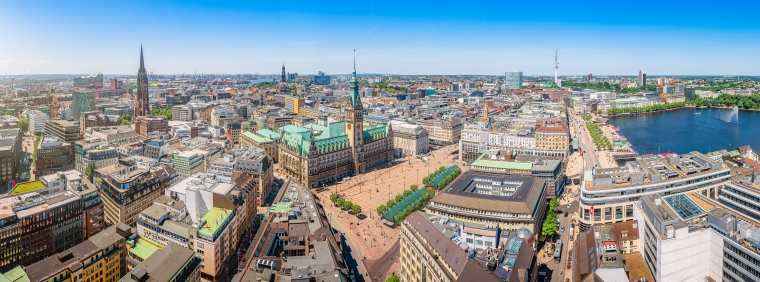

Hamburg was a major port city and commercial centre in northern Germany, while Frankfurt located in western Germany was the financial capital of Continental Europe.
In 1990 East Germany was unified with West Germany.
Hamburg
The city had the country’s largest port and become West Germany’s major industrialised city. All processing and manufacturing industries were represented there that made Hamburg an important economic centre, and the site of first-class trade fairs since 1960.

In the period of Germany’s division until 1990, Hamburg handled more than half of West Germany’s foreign trade, not only in the form of shipping cargo but also as rail and airfreight. Hamburg also had more consulates than any other city in the world, except New York City in USA.
BCCI first established a branch in Hamburg, then in West Germany, in April 1978, in one of the city's most exclusive shopping precincts Neuer Wall, near Lake Alster.
The vicinity was an important centre for trade and commerce, and housed the Stock Exchange, the Central Bank and the Chamber of Commerce & Industry.
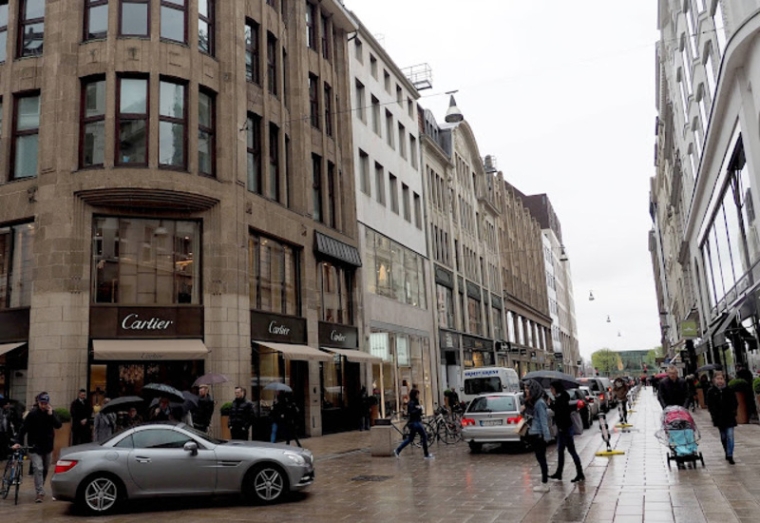
The branch was located at:
Neuer Wall 42,
Postfach 300626
2000 Hamburg
Telephone: (4940) 362 731/4
Fax: (4940) 36 4453
Telex: 2173257 BCC D
Banking, and foreign banking in particular, faced tough competition in Hamburg. The prosperous port city was a natural focus for trade, finance and culture. When BCCI Hamburg was established in 1978, there were 89 different banks, with more than 760 branches, all jostling for custom. Of these, 20 were foreign, with a corresponding number of representative offices of European and US banks.
Yet, despite the competition from local retail banks, Hamburg branch succeeded in dealing in all types of commercial banking, with a mixture of wholesale and retail business.
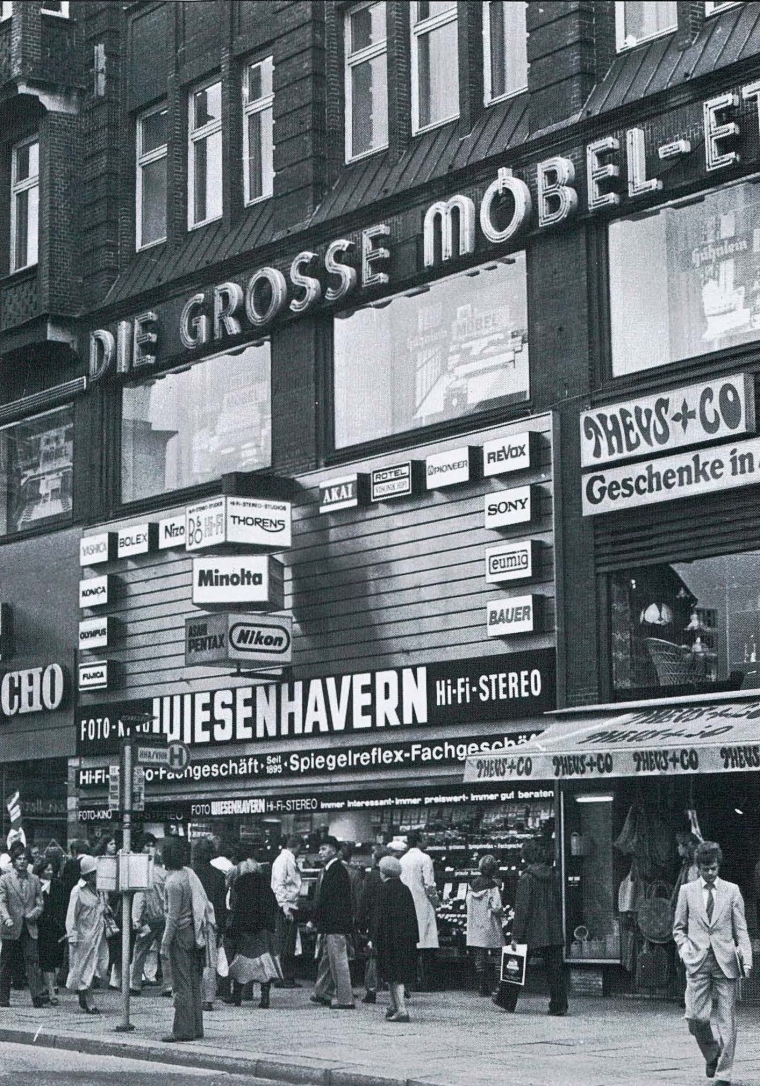
Part of its success was the branch’s relentless efforts to build up close contacts with the local clientele and expatriate communities, with the support of both BCCI Regional Office for Europe, and Central Office in London.
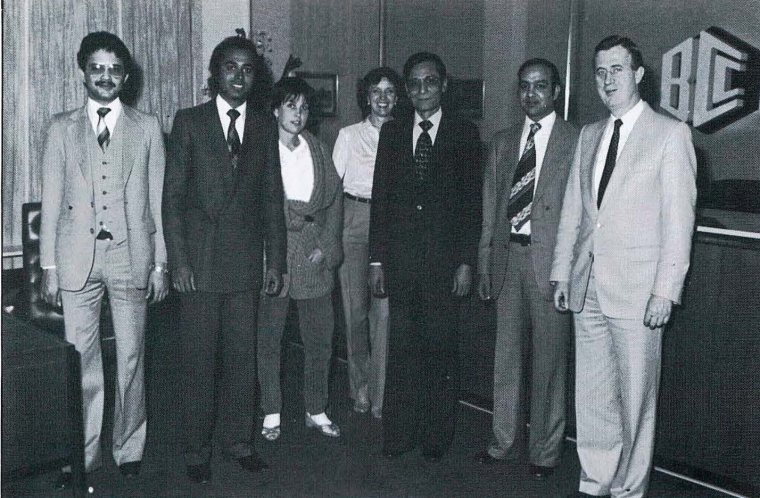
Frankfurt am Main
It was only after the unification of Germany that Frankfurt developed into a large industrial city.
The world's leading fairs for consumer goods, textiles, automotive technology. architecture and technology all also had their home in Frankfurt am Main.
BCCI established a second branch in the 1980s in Frankfurt am Main (Frankfurt on the Main City) because of the city’s growing reputation to becoming the largest financial and commercial centre in Continental Europe.
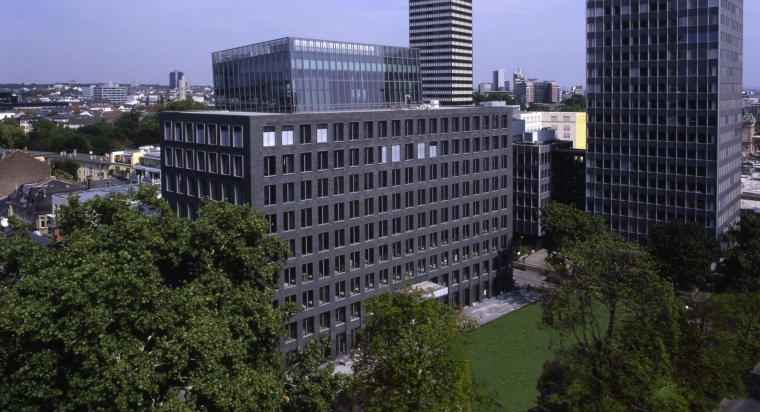
The branch was located at:
Bockenheimer, Landstrasse 51-53
Postfach 17-0164
6000 Frankfurt Am Main
Telephone: (069) 719129/0
Fax: (4969) 72 1579
Telex: 2173257 BCC D
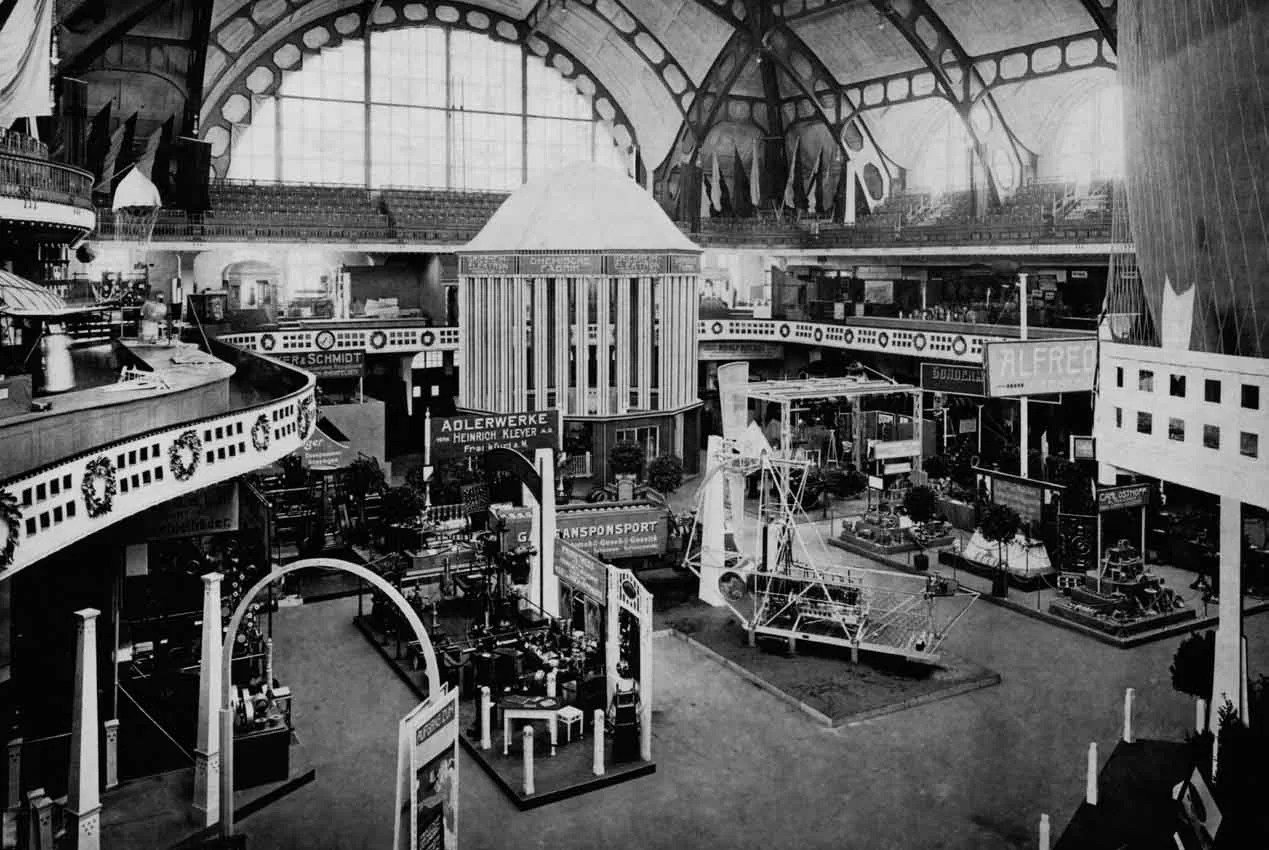
Frankfurt was a bustling market for goods of the medieval world that was evolving into a high-performance centre for global marketing. In 1920, the Frankfurt Spring Fair became an important foundation for the success of Frankfurt's international trade fairs. The Frankfurt trade fair expanded, establishing itself as an “all-round exhibition” with particular strength in the textiles and consumer goods sectors, followed by the development of specialised trade fairs and exhibitions that provided opportunities to German business and international companies to develop foreign trade.
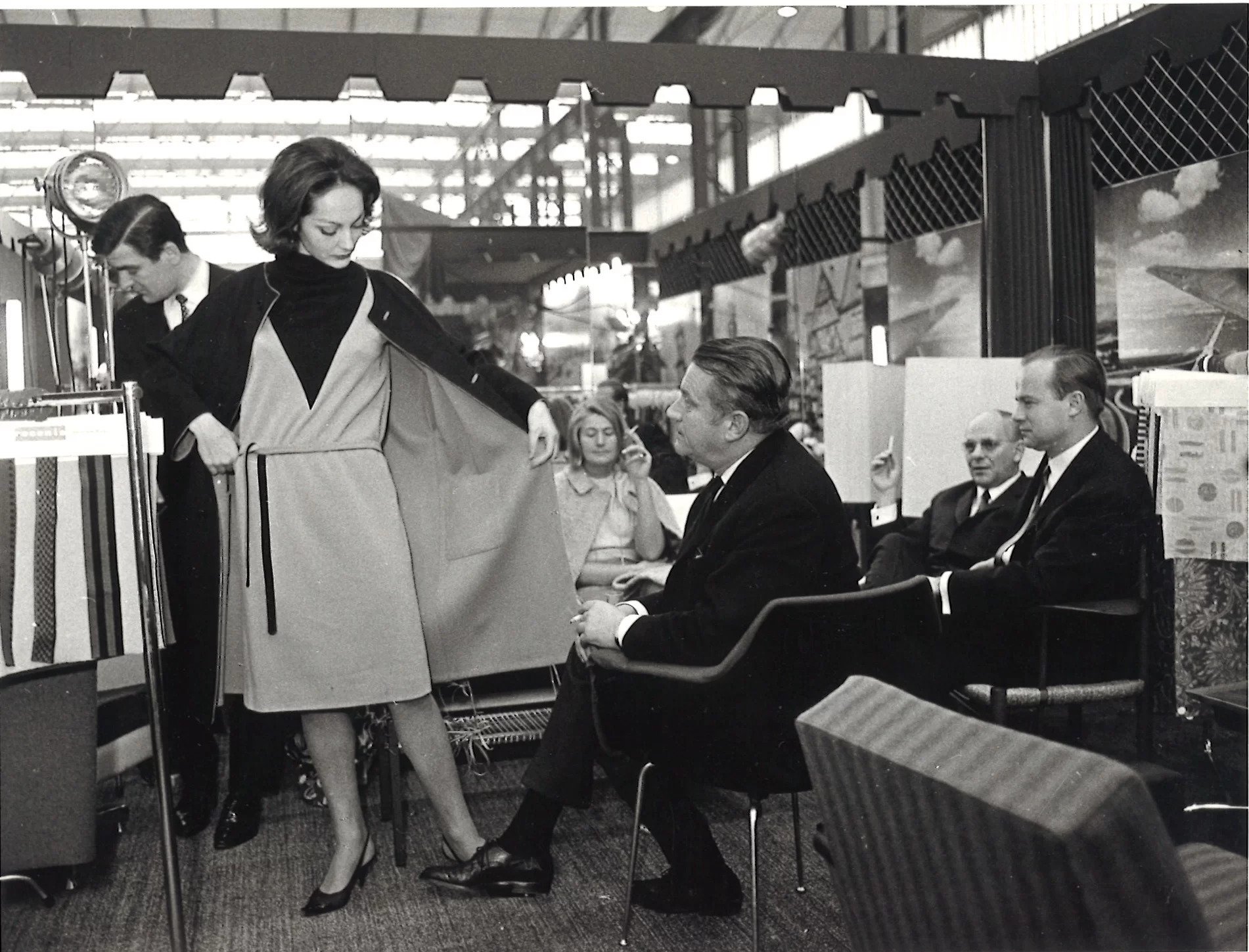
.jpg)
Mr Faisal Basheer, manager of the Frankfurt am Main branch, West Germany, was awarded the licence Geschaftsleiter (a German banking licence) in 1985 by the Deutsche Bundesbank , the country's bank supervisory authorities. He was the youngest official ever to receive the licence - an achievement which was seen as a reflection of the esteem in which BCCI was held by the West German authorities.
BCCI closure
On 5 July 1991 the Bank of England and other central bank regulators in the west decided to freeze BCCI Group's assets and abruptly shut down BCCI's operations worldwide.
The priority of the governments and central banks in some countries was to protect their people and the local operations of BCCI continued in a different name after the assets and liabilities were acquired by private in-vestors or another bank.
No information is available on BCCI’s operations in Hamburg and Frankfurt, Germany.
The BCCI Group majority shareholders considered the abrupt action by western central banks to shut down BCCI in 1991 was unjustified when they already had detailed discussions with the Bank of England and other regulators on a restructuring plan and would have injected further capital, if required.
In a 24-page report not made public but sent to some 60 central bankers worldwide, the United Nations Center on Transnational Corporations said that by simply shutting down the 70-nation banking network that financed international trade of $18 billion a year, the economic damage fell hardest on countries like Nigeria, Bangladesh and Zambia, where B.C.C.I. was an important institution. (New York Times, Feb 5, 1992)
